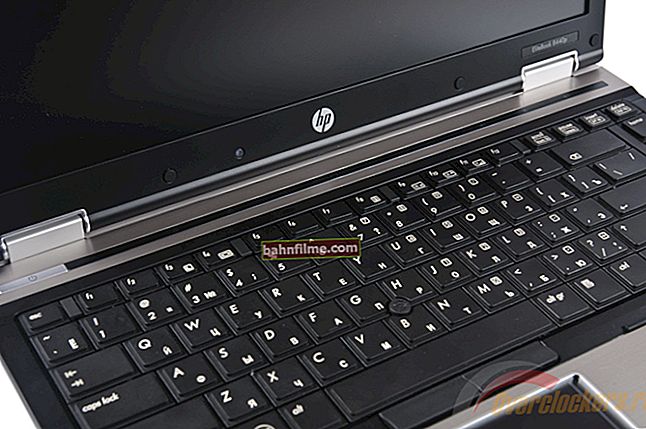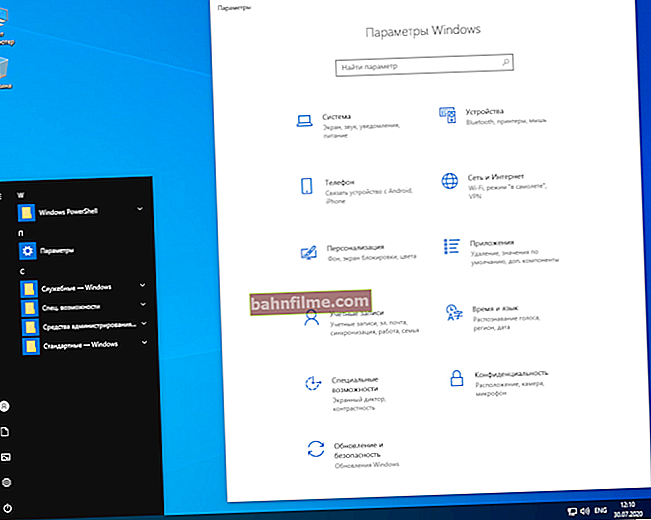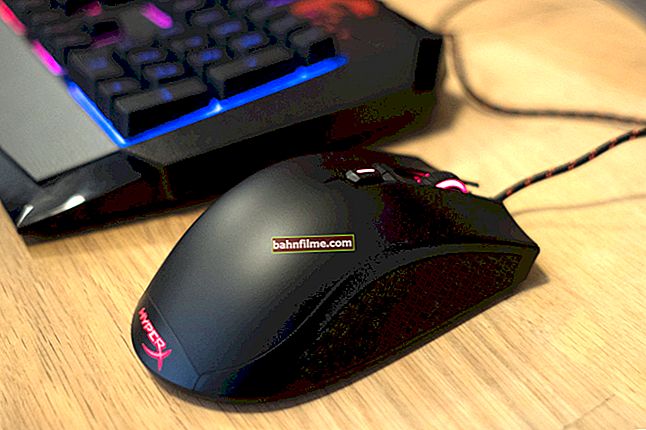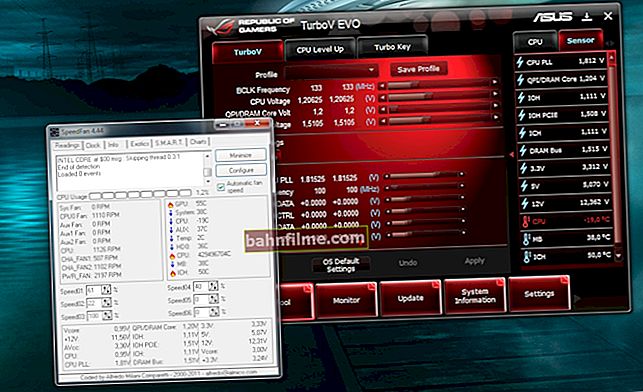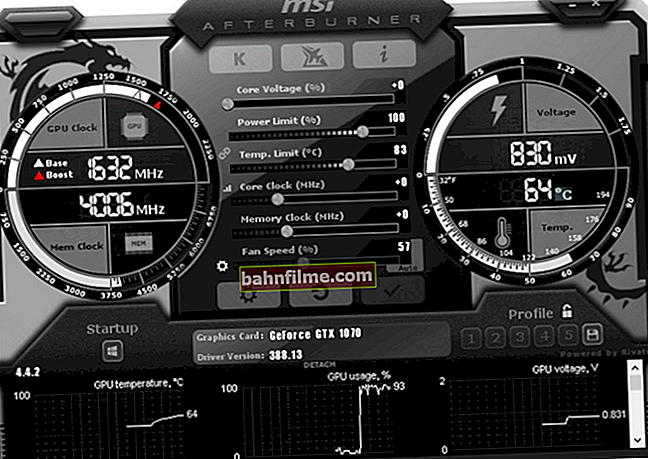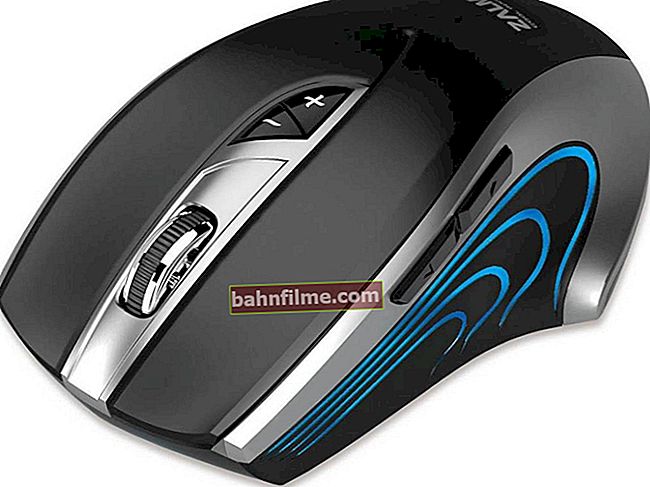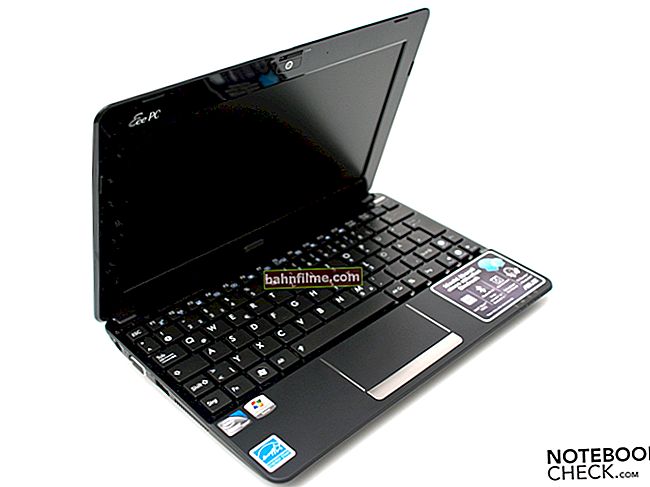
User question
Hello.
Tell me with one problem ... I used to have one 1000 GB disk. It became not enough for me, and I bought a second 2000 GB disk, installed it in the PC case myself. I thought there would be problems with connection and configuration - but everything turned out to be quite simple, the computer saw it on its own (I did not change anything in BIOS).
The only thing that worries me is the temperature of the drives. They began to warm up to 49-54 ° C (I didn't even know about it, I accidentally saw it when checking a new disk using the utility that came on the disk along with the drivers) ...
(note: the question was too big, the rest of it was cut out, as not informative)
Hello.
Yes, the problem is quite popular (especially in the summer). Most likely, you installed the disks too close to each other (and most likely there was no cooler opposite them) and they began to "heat up" each other. So the temperature began to rise ...
In general, in the article I will tell you what can be done with such a problem, and also touch on a number of derived issues on the topic. So...
*
About temperature (t) HDD (hard disk)
Monitoring utilities for (t)
I believe that such an article should start with how to generally find out and determine the current temperature of the disk (and how to track it in general).
AIDA 64
Officer. website: //www.aida64.com/downloads

Sensors / AIDA 64
One of the best software for diagnosing a PC and viewing its characteristics. In chapter "Sensors" you can find out the temperature of not only disks, but also the CPU, video card, mat. boards. See the screenshot above.
Note: in the program settings in the "Sensor signs" section, enable the display of temperature icons in the tray (next to the clock).

How it looks
HDD Life
Officer. website: //hddlife.ru/
Note: please note that there are several versions of the utility (for laptops, for PCs). Also, Windows 10 Defender may "swear" at the program installer due to the lack of a signature.

HDDLife - main program window
This program differs from the previous one in that, in addition to the temperature, it will show you the general condition of the disk as a whole. Moreover, it does not "bother" with some little-understood terms: the health of the disk is estimated as a percentage.
Also, it can automatically monitor the status of HDD / SSD drives and warn you in time about all potential problems. A very useful utility, especially for inexperienced users.
Speccy
Officer. website: //www.ccleaner.com/speccy

Speccy - the main window of the program
Free and very simple program to view basic information about your PC / laptop. Regarding our topic: the Speccy immediately after launch will show the temperature of all drives installed on the device (see the screen above).
If you want to see the temperature of the disk in the tray (i.e. track it), then go to the program options (Options) and open the section "System Tray" : put all the checkboxes in it that are there and select the disk for monitoring (see example below).

Speccy settings (to track temperature in the tray)
After you minimize the program, the value from the sensor will appear in the tray, in my case 35 ° C. In general, it is very convenient ...

Speccy - shows disk temperature
Optimal and critical HDD temperatures
In general, if we talk about this topic, then I would single out 4 temperature ranges (optimal, high, critical, and low). Of course, in this regard, it is worth paying attention to the manufacturer of your HDD: the optimal temperature ranges for different manufacturers may differ slightly.
Nevertheless, generally speaking, the values below are relevant for the vast majority of HDDs.
30-45 ° C
The most common (and normal) HDD temperature. If the operating temperature of your disk fluctuates in this value, then nothing extra. no need to undertake.
46-54 ° C
This range is already outside the optimal range (but not yet critical). As a rule, the temperature can "jump" here in the hot summer season with a heavy load on the disk.
It is recommended to check the cooling system (clean it from dust), install additional. cooler. In any case, you shouldn't leave it like that (as it is called "at random")!
In general, measures to combat overheating are given below in the article ...
Above 55 ° C
If the temperature reaches 55 ° C and has exceeded this value, this is an alarm signal! Anything above this value is a critical temperature at which it is highly undesirable to use the disk. I recommend turning off your PC and letting it bounce back.
With constant work in this temperature range, the life of the hard disk is significantly reduced (2-5 times or more!). The reason for this is that the increase in temperature leads to the expansion of materials, which, of course, affects the operation of a high-precision device (such as the phenomenon of HDD).
Below 22 ° C
Many people believe that the lower the operating temperature of the drive, the better. However, this is not quite true...
The fact is that when the temperature rises, the materials expand, and when it decreases, they narrow. This, in turn, also affects the high-precision operation of the device. In addition, at low temperatures of the outer casing of the device, condensation may form (even worse ...).
Usually, if the computer is not on the street, on the balcony, in an unheated room, then the temperature does not go beyond this value. Therefore, I will not dwell on this problem ...
How can you reduce the temperature of the HDD
In general, many factors affect the temperature of the HDD:
- the temperature in the room in which the PC is running;
- how close the HDD is to each other (if you have several) or to other devices (which also get hot during operation);
- dustiness of the system unit;
- availability and speed of coolers;
- load on the HDD (for example, if you download dozens of torrents all day without interruption - the load on the disk is much higher than if you were just working with documents).
In general, based on this, I will build recommendations.  .
.
1) Clean the system unit from dust
This is the first thing to do. For many users, PCs / laptops have not been cleaned for years. The air vents are clogged with dust, and good ventilation can be left out. As a result, the hot air from the computer case simply has nowhere to go ...
To help! How to clean a laptop from dust: by yourself at home - //ocomp.info/kak-pochistit-noutbuk-ot-pyili.html
How to clean your PC from dust. Cleaning the monitor, system unit, keyboard - //ocomp.info/kak-pochistit-kompyuter-ot-pyili.html

Dust and dust cleaning
2) Place the discs away from each other
The second tip is also one of the most obvious. If the disks are "spaced" away from each other, the temperature can be reduced to 10 ° C (or more). In addition, this operation does not take much time or effort. See the photo below.

Location of disks in the system unit
3) Install add. cooler
If you are unable to install the disks further from each other (or if this did not give the desired effect), install a cooler opposite them (in principle, any will do). If only there was extra. air circulation around the discs.
As a rule, connecting a cooler does not cause any difficult problems, and this is done even easier than connecting a disk (therefore, no comment  ) ...
) ...
4) For laptops - use special. coasters
If you have a problem with a laptop, then there is a special one for them. cooling pads. Their use allows you to reduce the temperature to 5-10 ° C (in some cases, even higher)!
To help! Laptop is warming up: what to do? Temperature is high all the time: 85 ° C + - //ocomp.info/greetsya-noutbuk.html

Cooling pad for laptop
5) Cool the room 
If you have a temperature of 40 degrees in the room where the PC is running, then the temperature of the disk will definitely not be less than this value (usually it is higher by 5-10 ° C). Of course, installation of an air conditioner would be a very good solution in this case.
In extreme cases, you can simply remove the side cover of the system unit and, on the contrary, put a regular fan.Such "ventilation" will significantly reduce the temperature of many PC components (not only the HDD).
6) Do not actively use torrents, editors, games
Well, and the last piece of advice: if the issue with the temperature has not yet been resolved, then try not to load the disk (and the computer as a whole) at this time. Active downloading of torrents, some games, editors - can significantly load the disk (and therefore increase the temperature).

Who creates the highest disk load / Task Manager
*
Add-ons are welcome ...
All the best!

